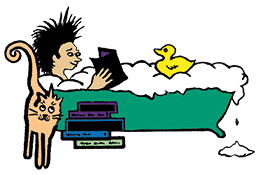Assessing and Treating Physically Abused Children and Their Families: A Cognitive-Behavioral Approach
Author(s): David J. Kolko and Cindy Swenson
Child Abuse | Cognitive Behavioural Therapy | Children & Adolescents
A professional book aimed at practitioners and practitioners in training, this volume is the first attempt to provide a comprehensive, practical approach to the assessment and treatment of physically abused children.
While there are other books that cover certain aspects of assessment and treatment, this book is comprehensive in that it covers child-specific, parent-specific, and family-specific interventions. The volume will present an overview of child physical abuse (including statistics and consequences), it will discuss outcome studies and treatment implications, and it will thoroughly discuss assessment and treatment. It will help practitioners:
Understand children's abuse experiences, views, exposures to violence, and it will help expose thinking errors or negative attributions. It will also help the practitioner help the children with anxiety management, anger management, social skills, and safety plans.
Help parents with child management and development, expectations and cognitive distortions, behavior management, and discipline.
Facilitate family communication and problem solving.
Product Information
Cynthia Cupit Swenson, Ph.D. is Associate Professor of Psychiatry and Behavioral Sciences at the Medical University of South Carolina. Her work primarily consists of research on community-based treatment for youth violence, child physical abuse, family violence, and community violence. Currently, via a grant funded by the National Institute of Mental Health, she is involved in examining treatment for adolescents and their families when physical abuse occurs. Dr. Swenson is a frequently invited speaker around the United States and has written numerous publications in the field. At the national level, Dr. Swenson is a member of the Board of Directors of the American Professional Society on the Abuse of Children (APSAC) where she serves on the Executive Council. Dr. Swenson also participates on a number of state Boards related to child maltreatment and youth drug court. In addition, she is involved with community service oriented Boards related to community development and youth West African Dance and Drumming. She received her M.S. in psychology from Northeast Louisiana University and her Ph.D. in clinical psychology from The Florida State University.
Foreword - D. Wolfe Acknowledgments 1. Introduction and Overview Significance of the Problem The Challenge Before Us Purpose and Overview of the Book 2. Characteristics and Correlates of Child Physical Abuse Child Characteristics and Correlates Maltreating Adult Characteristics and Correlates Family-System Characteristics and Correlates Community Characteristics and Correlates What Causes Child Physical Abuse 3. Treatment Outcome Studies: Clinical and Research Implications What Have We Learned? What Do We Need to Learn in Research to Make Treatment More Effective? What Would Make Clinical Practice More Effective? Summary 5. The Comprehensive Individual and Family Cognitive-Behavioral Treatment Model Models of Child Physical Abuse The Integration of Child, Parent, and Family Approaches Summary 6. Initial Treatment Considerations Introduction Preparation and Prerequisites Overview of Treatment Summary 7. Treatment of the Child: Understanding the Child's Experiences and Behavior Perspectives on the Child's Experiences With Family Hostility and Violence Contributors to Coercive or Abusive Interactions Understanding How We Respond to Different Problem Situations Summary 8. Treatment of the Child: Cognitive Interventions Clarifying and Changing the Child's View of Violence Normalization of the Child's Abuse-Related Feelings and Reactions Psychoeducation About Physical Abuse Summary 9. Child Treatment: Affect-Focused Interventions Affect Identification and Expression Management of Stress and Anxiety Management of Anger Summary 10. Promoting Children's Effective Coping and Social Competence Children's Coping Skills Social Support Enhancing Children's Social Competence and Developing Relationships: : Getting Along With Friends and Family Summary 11. Adult Treatment: Cognitive Interventions Parental Perspectives on Violence, Expectations, and Distortions Stress Management and Family Characteristics Views on Hostility and Violence Expectations of Our Children Thinking in Negative or "Distorted" Ways Summary 12. Treatment of the Maltreating Adult: Affect-Focused Interventions Self-Management and Regulation of Abuse-Specific Triggers Self-Management and Regulation of Anger Self-Management and Regulation of Anxiety and Posttraumatic Stress Disorder Self-Management and Regulation of Depression Summary 13. Treatment of the Maltreating Adult: Behavior Management Parenting and Behavior Management Specific Techniques and Guidelines for Rewarding Behavior Specific Techniques and Guidelines for Punishing Behavior A General Review of Behavior Management Summary 14. From Individual to Family Treatment: Bridging Through Clarification The General Structure of Clarification The Clarification Family Meeting Summary 15. Family Treatment: Setting the Foundation Overview of Treatment Setting the Foundation Assessment of Family Functions and Interactions Summary 16. Family Treatment: Skills Training and Applications Review of Initial Progress Family Skills Training Family Skills-Training Applications Summary 17. Community and Social Systems Involvement Service Settings and Systems Summary 18. Case Examples and Applications Case One: James Case Two: Tanisha Case Three: Marvin Summary 19. Conclusions Index About the Authors
General Fields
- :
- : SAGE Publications Ltd
- : SAGE Publications Ltd
- : May 2002
- : United Kingdom
- : books
Special Fields
- : David J. Kolko and Cindy Swenson
- : Paperback
- : 618.92858223
- : 360
- : illustrations


